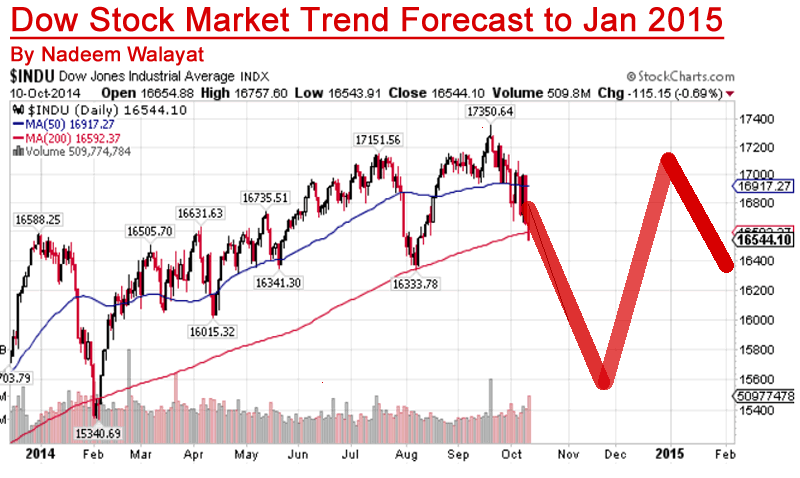
1. At the door, be aware of your emotions
"Successful investment isn't based on intelligence... what you really need is the temperament necessary to control the urges of others that can lead to financial ruin." Warren Buffett, chairman and CEO of Berkshire Hathaway is an example of this wisdom. He is a great role example for investors seeking long-term, market-beating wealth-building returns.
One bonus investment tip before we get into the details our portfolios: We suggest not investing more than 10 percent of your portfolio into individual stocks. The remainder should be in low-cost index funds. It is advised not to put any money into stocks in the next five years. Buffett means investors who allow their minds to guide their investing decisions and not go with their gut feelings. Indeed, overactivity in trading triggered by emotions is one of the most frequent ways investors hurt their own returns on portfolios.
2. Choose companies and not ticker symbols
It's easy to overlook the fact that the stock alphabet soup quotes appearing at the bottom of every CNBC broadcast actually represents a business. Stock picking is not an abstract notion. Don't forgetthat holding a share of a company's stock an opportunity to be a part of the company.
"Remember that purchasing shares in the stock of a company makes you a partial owner of the business."
Screening potential business partners will provide you with a wealth of data. However, it's easier to zero in on the most relevant details by wearing the "business buyer" costume. You'll want to know the way this business operates and what its role is within the larger industry, its competitors and its long-term outlook. whether it can add something unique to the business portfolio that you already have.

3. Don't panic during times of panic
Investors are often enticed by the prospect of change their stock-to-stock relationship. Making decisions in the midst of a crisis can lead to classic investing mistakes, such as selling high and buying high. Journaling can come to the rescue. Write down the characteristics that make each stock that you hold worth a commitment. Once you're clear on your thinking, you can consider whether it would be a good idea to break up the relationship. For example:
Why I'm Buying Tell us what appeals to you about the company. Also tell us about possible future opportunities. What are your goals? What milestones and metrics are most important for you when evaluating the progress of your company? The possible pitfalls that may occur and how to identify these.
What would drive me to sell? Sometimes, there are good reasons to split. For this part of your journal, write an investment plan that spells out what would drive you to sell the stock. We are not referring to stock price movements, especially not immediately and more to the fundamental shifts that might impact the company's ability to grow over time. The following are examples: Your investment thesis isn't realized within some time and the CEO is unable to win a key client or the successor of the CEO steers the business in a different direction.
4. Positions can be constructed gradually
The greatest asset an investor has is their ability to invest over time, not timing. Stocks are bought by the most successful investors due to the fact that they believe they will receive a reward -- through dividends, share price appreciation and dividends, etc. over a period of time or even for decades. This means that you can also take your time buying. The three buying strategies listed above can help you reduce your risk of price fluctuations.
Dollar-cost average may sound complicated, but it's not. Dollar-cost Averaging is the process of investing a predetermined amount of money over a regular time period like every week or once per month. The money you invest will purchase more shares when prices of stocks fall, and decrease when they increase however, it will still be the price you pay. A few online brokerage companies allow investors to design an automated investment schedule.
Buy in thirds: Similar to dollar-cost averaging "buying in thirds" will help you avoid the morale-crushing experience of a rocky start of the gate. Divide the amount you invest by three. Then, you can choose three points to purchase shares. The purchase dates can be set to be repurchased at regular intervals (e.g. quarterly or monthly) or based purely on the performance of the company. For example: You might buy shares prior to the product's launch and put the next three percent of your money towards it if it's a hit, or divert it elsewhere when it's not.
Purchase "the basket" Are you struggling to determine which company within a particular field will be the long-term winner? Purchase all of them! You don't need to select "the one" when you purchase a basket of stocks. You will not lose out on any company that meets your analysis, and you could also utilize the gains from the winner to protection against losing. This strategy can also be used to identify the "one" company in order to increase your stake in the event of a need.

5. Avoid overactivity
Monitoring your stock each quarter -- such as when you get quarterly reports is enough. It's hard to not keep an eye on the scoreboard. This could lead you to react too quickly to immediate things. It's possible to focus more on the share price than on the value of the company, and feel like you have to act, even though none is necessary.
Learn the reason behind the sudden price change of a stock. Are collateral damages resulted by the market as a result of an incident that is not related to your stock? Does there appear to be any shift in the company's business? It could affect your long-term outlook.
Very rarely is short-term noise important to the performance of the company over time. How investors respond to noise is what really matters. This is where your investing journal can be a helpful guideline to help you persevere through the inevitable volatility and fluctuations that come along with the investment in stocks.